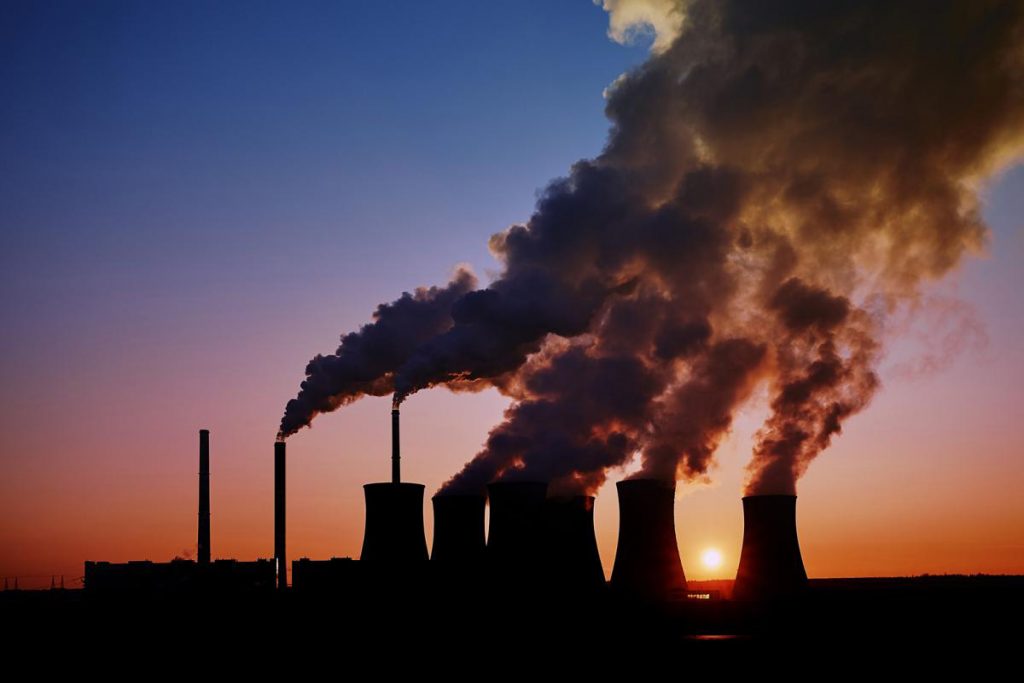Claude Kabemba
Ahead of COP27, a debate is raging on African governments’ united position not to abandon fossil fuels in the immediate future. Increasingly, linked to the West’s inability or unwillingness to finance Africa’s energy transition and the economic and social realities, it is being asked in different forms whether Africa can afford to ‘strand’ its fossil fuels?
There are two distinct viewpoints. One is in favour of continuing with fossil fuels. It is dominated by African governments with tacit support from the West.
The other is against fossil fuels and is dominated by civil society organisations. There is a huge disagreement between the two groups on how to deal with the energy transition on the continent.
African governments’ position
The African governments’ position is contained in the African Union (AU) Climate Change and Resilient Development Strategy and Action. In this plan, African governments argue that
For African governments, the sudden abandonment of fossil fuels as a main source of energy and a key foreign exchange earner will be detrimental to African economies and development.
Ninety percent of African countries depend on primary commodities, either for state revenues or exports, and two-thirds are dependent on minerals.
This position is a 180-degree U-turn from their commitment to the Paris Agreement and to Nationally Determined Contributions (NDCs) and National Adaptation Plans (NAPs) confirming their commitment to reduce emissions and adapt to climate change.
The African position is being promoted at the same time as the EU is making similar policy decisions. Increasingly, confronted by economic and social realities, African governments are resisting the abandonment of fossil fuels, just as the Europeans are rethinking the pathway in the wake of the Russia-Ukraine war.
Some EU states have decided to recommission thermal energy plants and Japan’s decision to re-activate nuclear power plants. The risk of stranded assets presents a major policy issue for the African continent due to its dependence on natural resources.
With the EU facing similar challenges, it is possible to see Africa and the EU conniving to argue in favour of gas as a transitional source of energy. If there are buyers for the continent’s fossil fuels, they will remain economically viable commodities.
African nations’ appetite for exploiting untouched gas reserves contradicts UN Secretary General António Guterres’ repeated calls for phasing out fossil fuels, including gas. The UN Secretary General sees investing in new fossil fuel infrastructure as “moral and economic madness.”
However, we have not seen an uproar from the UN Secretary General on the EU position around gas. The problem with global institutions is that they are biased in favour of the West.
When the EU argues for more gas and oil in the wake of the Ukraine-Russia war, UN institutions keep quiet; when Africans make the same proposition, they are rebuked.
African governments are asserting their right to use fossil fuels – and gas in particular – for several more decades.
The future of gas was also the key issue at the Sustainable Energy for All (SE4All) forum held in Kigali, Rwanda, in May 2022.
The Kigali meeting published a seven-point communique in which participants called on the international community to “support Africa in the deployment of gas as a transition fuel and the long-term displacement of gas by renewable energy and green hydrogen for industrial development, if financially and technically sustainable.”
This, they said, would help “address development gaps” and “put Africa on a pathway to economic prosperity and net zero”. Surprisingly, Amina Mohammed, Deputy UN Secretary (supported by head of SE4All, Damilola Ogunbiyi who attended the meeting) went against her boss by supporting the African governments’ position.
She argues that “Gas, in Africa, probably must be part of the equation for a bit longer as a transitionary fuel because gas also affects cooking. It’s going to be very strange to tell the whole of Africa ‘don’t use gas because it’s a fossil [fuel] and continue using fuel wood.”
She further argues that “If people that don’t have electricity in Africa got powered by gas today, it would increase Africa’s… emissions by 2-4%. So, it’s not fair to keep identifying Africa’s fossils as the problem.”
For South African President Cyril Ramaphosa, “a one-size-fits-all approach to complex issues such as a transition from fossil fuels that disregards the realties in Africa are not practical or equitable.”
The African governments’ position should not have come as a surprise. Since signing the Paris Agreement, African governments have not taken steps to decrease their fossil fuels footprint; on the contrary they have been increasing production, new projects are coming on stream, and they have been expanding geological research to find new reserves.
Across Africa, gas is at the heart of a development versus decarbonisation challenge. African governments, despite their commitment, have not acted in accordance with the Paris Agreement.
The case of South Africa is key to understanding why African governments have not rushed to act on their commitments. Coal provides about 77 percent of the country’s primary energy and is also the country’s single biggest export, registering $8 billion in offshore sales in 2019.
Coal is important not only for electricity production but also for jobs. The country is experiencing an electricity crisis, with demand for electricity exceeding supply. The only way that that can currently be managed in the short term is through load-shedding.
So, the question of transitioning towards renewable energies is a critical issue for government and communities in the context of extremely high rates of inequality, unemployment, and poverty. Abandoning coal without a strong alternative energy source could be a recipe for social, economic, and political disaster.
The indecisiveness about whether or not to abandon fossil fuels is not unique to Africa. It also affects developed countries, as both consumers and producers. Following the Ukraine-Russia war, the latter has reduced its provision of gas to the EU, and the EU has been looking for alternative sources of coal, oil and gas to keep its lights on.
Africa has been identified as one of the continents that can help the EU by-pass Russia’s gas dominance. For geopolitical reasons the EU and the USA have been encouraging African fossil fuel producers—South Africa, Mozambique, Botswana- to increase their production. Most EU countries have restarted their coal industries to generate electricity.
The USA also has increased its coal export to EU. For example, Senegalese president Macky SALL is said to be excited at the German government’s decision to invest in liquified natural gas (LNG) production and export to Europe.
The EU and the USA coal and gas gas exploitation will violate their pledge made at COP26 to end international public finance for unabated fossil fuels, including gas, by the end of this year. The West for their interest alone are renegading on their commitment and responsibility to cut big emissions.
Europe’s U-turn on its energy transition commitment exposes its selfishness and self-aggrandisement. So, African governments are being encouraged in their decision by European and American attitudes toward fossil fuels.
This western attitude should be a clear signal to Africa that it has also to protect its interests at all costs. And the question that has been posed by Ovigwe Eguegu “If Europe is using gas as a transition fuel or for political calculations, why shouldn’t we?” finds its full resonance in this circumstance, and Africa’s ministers are correct to raise the stakes by threatening to also use gas for the foreseeable future as a source of energy.
Civil society’s position
For civil society groups, it is madness for African leaders to continue to increase fossil fuel extraction at a time when “scientists reveal they now have ample evidence that climate change could lead to worldwide societal collapse or even human extinction even with modest levels of warming.”
For civil society it is possible for African countries with the right leadership to make the transition from fossil fuels.
The environmental and social benefits of moving quickly towards renewable energy clearly outweigh those of fossil fuels. Renewable energy technologies can help deliver energy services to millions of previously excluded African communities fast and cheaply.
Civil society is clear, Africa should not be distracted by EU short-term plans. For its own interest, the EU is turning its back on the Paris Agreement and is forcing Africa to increase fossil fuel production to meet its current short-term needs in energy.
Civil society warns that this EU appetite for fossil fuels will stop immediately when it achieves full domestic productive capacity in green energy, and there will not be a market for Africa’s stranded assets. Western countries are prosperous enough to pay for policies that can place them on the path to net-zero emissions by mid- century.
Africa’s fossil fuels are dependent on western and Chinese markets and investment. Africa does not have the infrastructure to consume its own gas or oil; much of the gas and oil production under development in Africa is destined for export. As the Africa Development Bank suggests, “Some assets will be “stranded” due to changes in markets and investment flows as global extractive companies and investors adjust their portfolios to meet new low-carbon regulations.”
Also, Africa’s extractive assets are at risk due to changing consumer demand, such as the growing use of solar energy and electric vehicles in developed countries.
It stands to reason that fossil fuels like gas and coal are not the future. The EU, once it has its renewables up to speed, it will drop these new gas and coal agreements, it is signing with developing countries.
Evidently, as soon as the West achieves full capacity in green energy, Africa’s gas and coal will be dumped and automatically become stranded unless African governments have integrated in their policy to rapidly start to process and consume these resources on the continent.
However, this does not seem to be a priority for African leaders. They are eying immediate revenues rather than providing energy to people.
The example of Mozambique is revealing where foreign companies have built a $20bn offshore natural gas field and onshore liquefied natural gas facility, which will be exported in a country where 70 percent of the population still lives without access to electricity.
It is, therefore, important for Africans to reflect without emotion on what is good for Africa at this juncture. For civil society, like the young Ugandan activist Vanessa Nakate, “…gas exploration and gas-fired power infrastructure in Africa are robbing us of vital time to switch to clean energy.”
For Mohamed Adow, director of Power Shift Africa, “For Africa, it would be idiotic to invest our little resources to expand gas production just to help Europe in the short term when we could be investing in our own sustainable renewable energy.”
For civil society, Africa should not waste time and resources on fossil fuels. Instead, it should focus on renewable energy for which it has a comparative advantage and could become a global leader in energy provision.
First, the continent has in abundance all the critical minerals needed to electrify the transport system. So, Africa should focus on the promotion of beneficiation and value addition to these critical minerals to secure a locally driven energy transition.
In fact, Africa has the producer power for all critical minerals needed to secure the energy transition (cobalt, graphite, lithium, nickel, zinc, manganese). Without Africa’s minerals, it is practically impossible today to achieve the energy transition.
Climate change has opened an opportunity for Africa to make a paradigm shift from a model where it exports raw materials to a model where it produces, and exports finished goods. Second, Africa receives 40 percent of world sun energy.
This is a great opportunity to lead in solar energy. Research shows that renewable energy costs are falling35 and will continue to fall, which is good for poor communities.
Quickly ramping up the use of wind and solar power will expand energy reach to people previously excluded, reduce the cost of energy for households, and create new jobs. It is no longer refutable that a renewable energy revolution could unlock Africa’s social and economic development. What is more exciting with renewable energy is that it will not need major infrastructure to reach remote communities.
It provides opportunities for “localised and resource-efficient energy options like decentralised, community-owned local solar, wind and biomass projects.”
This approach will resolve a major headache for African governments: how to provide energy to rural households, local producers, and women – including social services such transport, health, education, and childcare.
It is opportunistic for African governments to insist on fossil fuel production because past and current production has never benefited the African people.
The benefits of fossil fuels are misappropriated in large part by corporations through illicit financial flows and tax evasion, leaving African governments with peanuts which is then misappropriated by political elites.
All over Africa people are being negatively affected by fossil fuel extraction through pollution and eviction. The extraction of fossil fuels has never advanced people’s access to electricity. In areas where fossil fuel is extracted there is seldom any development for communities.
Instead, communities are the recipients of environmental destruction and human rights violations. The fossil fuel economy is only good for the African elites and for foreign corporations, and not for the African people.
It is also important for African leaders to understand that fossil fuels will not meet African demands for electricity. With the population in sub-Saharan Africa expected to grow from 1 billion in 2018 to more than 2 billion in 2050, the demand for electricity is projected to expand 3 percent a year.
The sources of energy will need to change if Africa is to provide sustainable and clean energy to its people.
As Alex Benkenstein from the South African Institute of International Affairs puts it, “The current energy crisis is enough reason for the country to invest in renewable energy since coal has failed to serve the people and the economy of the country… if South Africa had added five gigawatts of renewable energy production in place by 2021 that could have prevented about 95 per cent of the load shedding that the country experienced last year.”
Is it possible to find a middle ground?
A key question is whether Africa can do both – invest in gas and invest in green energy? A solution to this question could be found in the middle, where Africa is allowed to continue extracting fossil fuels from current projects that are in operation without investing in new coal or gas exploration permits and is simultaneously supported to invest massively in renewable energy.
It is clear when you consider all parameters – economic, financial, and social – that the continent is not ready to suddenly shift completely from fossil fuel energy.
The argument by the president of Senegal (and president of the AU), Macky SALL, that “Africa must be able to exploit its large gas reserves for another 20 or 30 years to further its development and provide access to electricity to the 600 million people who are still deprived”39 is only reasonable and acceptable if Africa limits fossil fuel production to projects already in operation, without investing in new projects. A position on active projects to be allowed to continue could have the sympathy of the world.
This would not be exceptional to Africa; China has also promised that it will not build new coal power plants.
This is in some way in line with the African common position which encourages striking a balance between ensuring access to electricity to catalyse the much-needed socio-economic growth in Africa and smoothly transitioning towards an energy system based on renewable and clean energy sources matching the ambitions of Agenda 2063.
If African leaders are looking at fossil fuels beyond projects already in operation, then they will be disappointed because they do not control either the investment, the production, or the market.
Firstly, the investment which is expected for oil and gas production is foreign. This investment might not materialise and can be withdrawn at any time.
Secondly, Africa is dependent on external markets to sell its oil and gas. These markets will soon be reduced as western countries improve their green energy capacity.
There is also price volatility which Africa does not control. While the process of abandoning fossil fuels must be incremental, Africa will have to abandon fossil fuels at some stage, and it needs to turn its full attention and resources onto a more secure energy mix.
This is a Southern African Trust publication authored by Claude Kabemba






